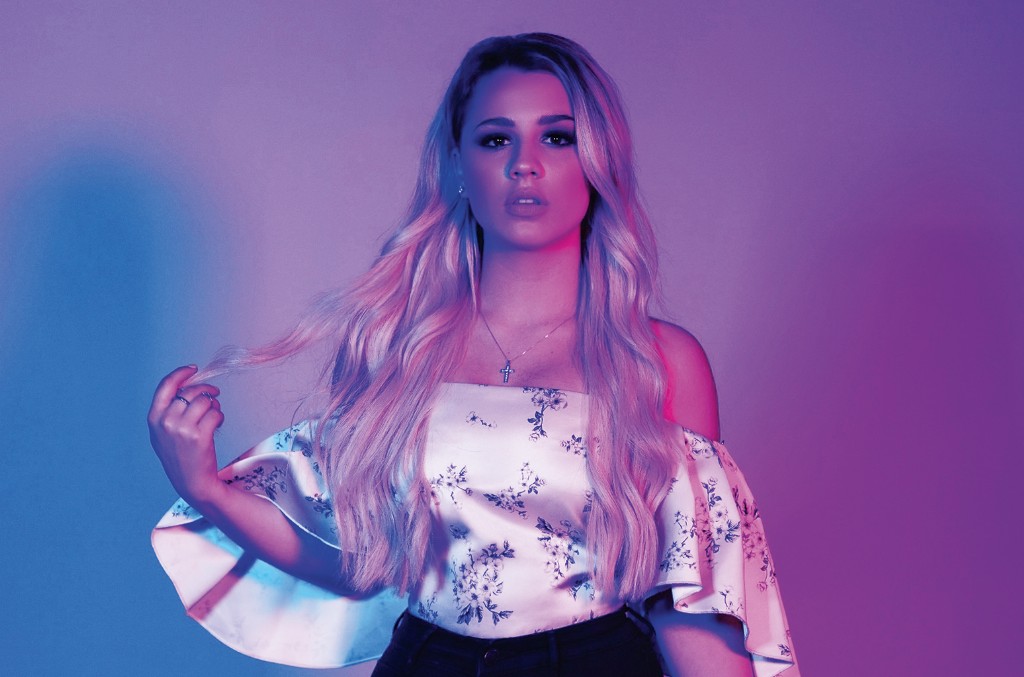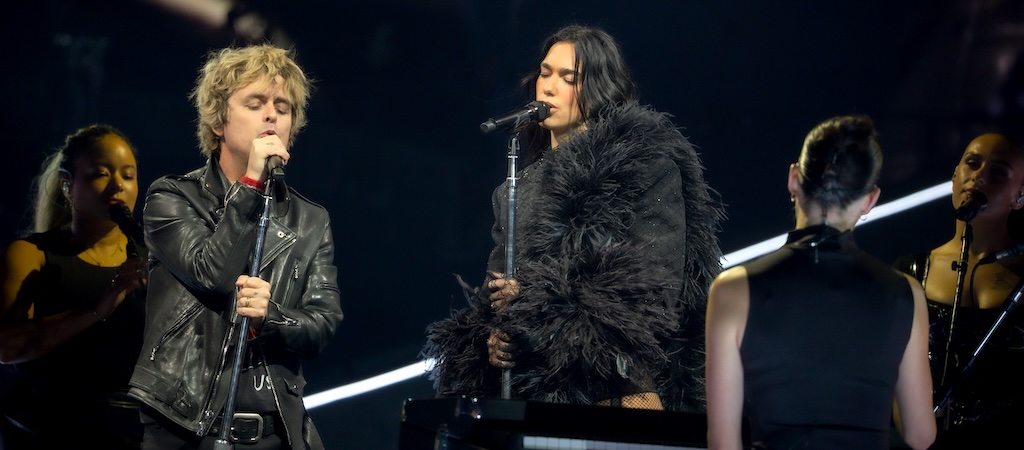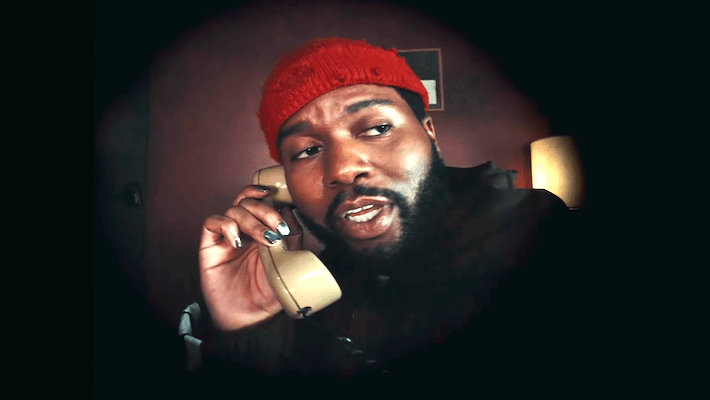Nine songs into Gabby Barrett‘s debut album, Goldmine, the end of the chorus in “Hall of Fame” reveals an unexpected nugget: a high-pitched trill-like vocal sound that has all the other-worldly qualities of Mariah Carey‘s “Emotions.”
That moment, and the fact that Barrett let 25 minutes pass before employing it in the album, says several things about her:
• She brings a phenomenal range to her craft.
• She has listened to some of pop music’s classic singers.
• She’s mature enough — and confident enough — to employ that part of her skill set judiciously, rather than turning it into a gimmick.
In the process, Barrett uses those creative attributes in a way that assists her marketing needs, branding her as a unique talent in her chosen genre.
“I’m always looking to find things that are different in country music,” she says. “Nobody has done Mariah Carey whistle-tone notes in country music that I’ve heard of, and if you’re capable of doing it, you might as well add it in. I always look for things to differentiate [myself] from the crowd.”
Goldmine, due June 19 via Warner Music Nashville (WMN), already benefits from some marketplace differentiation. Barrett’s lead single, “I Hope,” hit No. 1 on the Country Airplay chart dated April 25, making her only the third solo female to accomplish that feat with their first country-marketed single since Carrie Underwood did it with “Jesus, Take the Wheel” in 2006. The RIAA has certified the song platinum, and it includes a dark instrumental texture that’s purposely mimicked in her follow-up single, “The Good Ones.”
Barrett, as those Carey-like tones suggest, has the talent for her new job, but she also has the determination to stand out at a business level from the pack. She already had spent six years performing live in and around her native Pittsburgh before she was introduced nationally in the 2018 season of ABC’s American Idol. She finished third, but her pre-Idol experience made her aware that coasting after the season ended would be a mistake. Underwood, who won Idol in 2005, confirmed that belief.
“I said, ‘How do I keep this momentum going after Idol?’ ” recalls Barrett. “And she said, ‘You just got to work hard.’ She said on days that she barely had off, she would fly and she would write and record. She would do all of that, and it eventually paid off for her. And I agree 100%.”
However, as a 2005 winner, Underwood had a recording deal waiting for her. Barrett, as a 2018 second runner-up, did not. And when Red Light Management head of marketing Tom Lord made Nashville labels aware that his company was representing her, none of them called. Barrett, while on the American Idol Live tour, wanted to change that scenario quickly, and Lord told her — skeptical that she would follow such a difficult path — that she could fly to Nashville on her off days, write new material and fly back out. She followed his advice, and — despite fatigue and jet lag — cowrote “Rose Needs a Jack,” a Titanic-inspired song that eventually made Goldmine, on that first trip.
Her determination “gave me this rocket-fuel boost,” says Lord, and he helped her book an insane in-and-out schedule throughout the tour that grew her base of original material and built her reputation in Nashville’s creative community.
Zachary Kale, who coproduced Goldmine and cowrote “I Hope,” was simultaneously impressed and taken aback the first day they worked together when she told him she hoped to pattern herself after Whitney Houston with a tinge of Dolly Parton. He quickly learned to trust her ambition.
“I’m more than stoked to be a part of anything Gabby does,” says Kale. “From day one of writing with her, I [thought she was] a star.”
“I Hope,” of course, broke her out as an artist, though its vengeful attitude is not dominant in Goldmine. The album concentrates instead on themes that have been central to her world the last few years. That includes her faith — raised Catholic, she adopted a Protestant doctrine in the last two years — and her romance and eventual marriage to fellow Idol contestant Cade Foehner, who inspired current single “The Good Ones” and plays guitar on several tracks, including “Footprints on the Moon.” That song draws on Barrett’s innate determination — “You can do anything, anything you want to” — which helped her keep her eye on the music prize, even as a youngster when, like Parton, classmates scoffed at her ambitions.
“I’ve always tried from a very young age to be positive,” says Barrett. “I thought it was fitting — this being an album that’s completely about me, as much as I can get in it in 13 songs — that I put an encouraging song on there for people out there that may be going through the same things I did.”
That is what makes Goldmine an apt title: Barrett may have struck a goldmine in her career choice, while WMN may have tapped into one by signing her. Her school experience developed her insistent self-belief, the six years of performing locally in Pittsburgh gave her insight into her offstage work ethic, Idol gave her exposure, and her willingness to listen to mentors, including Underwood and Lord, gave her the drive to convert that TV opportunity into a budding career.
Meanwhile, using the Carey-like whistle tone helps establish a unique place for her in the country universe, though employing it in moderation means she has left plenty of room to grow by using the assets in her creative toolbox in other ways.
“There’s a happy medium to everything, even with powerhouse singers,” she says. “You don’t have to belt it out all the time. You don’t have to overuse something.” It’s an uncommonly mature outlook from such a new artist. And a sign that this Goldmine may be a mother lode.
This article first appeared in the weekly Billboard Country Update newsletter. Click here to subscribe for free.



